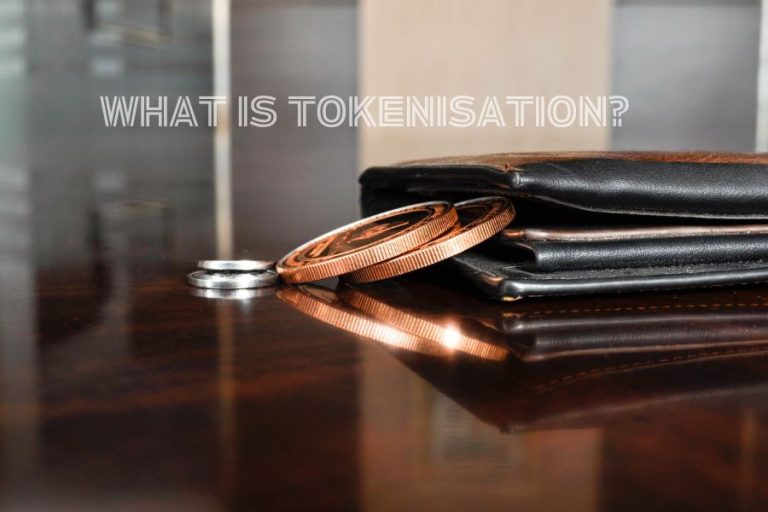In the rapidly evolving digital era, the term “Tokenisation” has become increasingly prominent, shaping the way we approach security, finance, and technology. This blog article aims to delve into the essence of Tokenisation, explore its future implications, analyze its current state in India, and discuss its intersection with Large Language Models (LLMs).
Understanding Tokenisation
At its core, Tokenisation refers to the process of converting sensitive data into a non-sensitive equivalent, known as a token. This token retains essential information about the original data but lacks the vulnerability associated with exposing sensitive details. Commonly used in cybersecurity and finance, Tokenisation serves as a robust method for securing transactions and protecting sensitive information.
The Anatomy of Tokenisation
Tokenisation involves a two-step process: first, the sensitive data is identified and classified, and second, a unique token is generated to represent that data. For instance, in the realm of online transactions, credit card numbers are often tokenized to enhance security. This ensures that even if a breach occurs, the stolen information is useless without access to the original data.
The Future of Tokenisation
As technology advances, the future of Tokenisation holds exciting possibilities across various industries. One notable area is decentralized finance (DeFi), where blockchain technology and smart contracts leverage Tokenisation to revolutionize traditional financial systems. Tokenisation enables the fractional ownership of assets, opening up new avenues for investment and financial inclusion.
Blockchain and Tokenisation
Blockchain plays a pivotal role in the future of Tokenisation. By harnessing the transparent and decentralized nature of blockchain, Tokenisation ensures immutability and traceability, reducing fraud and enhancing overall security. The ability to tokenize assets like real estate, art, and intellectual property paves the way for a more accessible and liquid market.
Tokenisation in Supply Chain
Tokenisation is poised to reshape the supply chain industry. By representing physical assets as digital tokens on a blockchain, the entire supply chain process becomes more transparent, efficient, and resistant to fraud. This transformation could mitigate issues such as counterfeit goods and supply chain disruptions, fostering a more reliable and streamlined global economy.
Tokenisation in India
India, with its burgeoning tech ecosystem, is actively embracing Tokenisation across various sectors. The adoption of digital payment systems and the push towards a cashless economy make India a fertile ground for the growth of Tokenisation.
Financial Inclusion and Tokenisation
Tokenisation has the potential to drive financial inclusion in India by democratizing access to investment opportunities. Through tokenized assets, individuals can invest in a diverse range of assets, from real estate to startups, without significant capital barriers. This democratization aligns with the Indian government’s vision of expanding financial inclusion and boosting economic growth.
Regulatory Landscape
As with any technological advancement, Tokenisation in India faces regulatory considerations. Striking a balance between fostering innovation and ensuring consumer protection is crucial. Regulatory frameworks need to evolve to accommodate the dynamic nature of Tokenisation, providing a clear and secure environment for businesses and consumers alike.
Tokenisation and Large Language Models (LLMs)
The synergy between Tokenisation and Large Language Models (LLMs) is a fascinating intersection that holds immense potential. LLMs, such as GPT-3, thrive on vast datasets, and Tokenisation plays a pivotal role in preparing and structuring these datasets.
Enhancing Natural Language Processing (NLP)
Tokenisation is fundamental to NLP, enabling machines to understand and process human language effectively. By breaking down sentences into tokens, LLMs can analyze and generate coherent responses. This symbiotic relationship contributes to the continuous improvement of language models, making them more adept at understanding context and generating contextually relevant content.
Tokenisation in AI and Machine Learning
In the realm of artificial intelligence (AI) and machine learning (ML), Tokenisation is crucial for data preprocessing. It allows large datasets to be efficiently handled and analyzed, enhancing the training and performance of models. Tokenisation facilitates the extraction of meaningful patterns from textual data, contributing to the advancement of various AI applications.
Conclusion
As we navigate the ever-changing landscape of technology, Tokenisation stands out as a transformative force with far-reaching implications. From securing transactions to revolutionizing finance and empowering AI, the future of Tokenisation is bright. In India, the convergence of technology, regulatory frameworks, and a growing digital ecosystem sets the stage for widespread adoption.
The intricate relationship between Tokenisation and Large Language Models further underscores the interdisciplinary nature of technological progress. As we embrace the future, understanding and harnessing the power of Tokenisation will be paramount in shaping a secure, efficient, and inclusive digital world.


